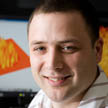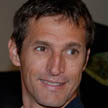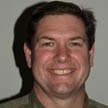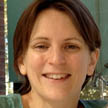I’m a Scientist is like school science lessons meet the X Factor! School students choose which scientist gets a prize of $1000 to communicate their work.
Scientists and students talk on this website. They both break down barriers, have fun and learn. But only the students get to vote.
This zone is the Boron Zone. It has a range of scientists studying all different topics. Who gets the prize? YOU decide!









Science is important because it allows us to describe, define, investigate and ultimately try to understand the world in which we live and how it works.
By increasing our understanding of the world (and worlds beyond) we are able to identify and potentially protect endangered species, define how earthquakes or volcanic eruptions occur, create new chemicals, define causes of climate change, improve the health or quality of life for people, just to name a few.
Many of the common items you find in your home from the fridge to the paints on the wall and the computer to toothpaste are all products of science. Science in its purest form – like describing a new insect species or discovering a new chemical compound – does not in itself change our lives. However this collective knowledge and the application of science certainly do affect us greatly and change our lives.
As I see it “animals, plants and humans” don’t revolves around science – science is about asking questions, particularly WHY! Science does however revolve around these and many other phenomena (things) that occur or exist in our universe. 😀
0
This is a great Q
Science is really the art of discovery. Through science we start to understand the role that humans (as an animals species) play in the environment – how we have impacted it and how we can save it. There is no question that society will face many complex challenges over the next 100 years. Sea levels will rise by ~1m by 2100 and temperatures will increase by ~2-3C. Added to this human population increase and its associated resource use are at the core of it. Science can play, and has to play, a main role in developing solutions and scientists need to play a bigger role in encouraging society, including the kids, in the key debates.
Clearly there is a future role for potential scientists to become engaged 🙂
It is my feeling that we [scientists] need to break down some of the barriers that prevent scientists from different disciplines working together because solutions to complex environmental problems will come from collective thinking. Believe it or not scientists from different disciplines (physics, chemistry, economics, psychology, biology etc) don’t often get the opportunity to mingle and chat and put their combined wisdom together. imascientist has been great at this
Thanks sauble1000
0
What a great question!
Science is the way that we understand (and manipulate) the world and universe around us. But more than that, science is how we can satisfy our curiosity. All of the information we have about the Earth and the Universe – plants, animals, rocks, minerals, oceans, stars, galaxies, everything – came through scientific study, which was driven by our curiosity to know why things are the way they are.
Science has given us so many benefits. It allows us to protect ourselves from the environment, and it allows us to the protect the environment from ourselves. Everything that we use in our day to day lives, from the clothes we wear, to the phones and electronics we use, has come about because of science. Someone, somewhere figured out how and why something works or doesn’t. Often they were not even looking for an application, they were just curious, and a new physical phenomenon or a new species was discovered.
Of course once we understood the benefits of scientific study, we started looking for answers more systematically. Science is more about systematic investigations of unexplained phenomena nowadays, although luck and serendipity can still a big part.
Finally, animals, plants and humans do not really revolve around science. A better way of looking at it is to think of science as a tool to discover how they interact and evolve on Earth, and where humans fit in the grand scheme of things.
0
I think I’m too late to the party to add anything to what James, Simon and Mark have said already.
0